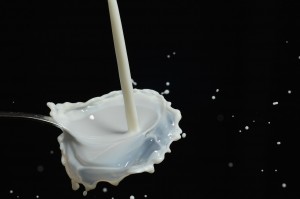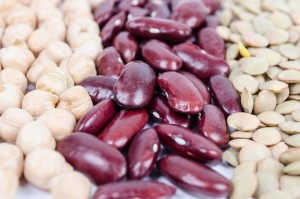People may follow a dairy-free diet for a wide range of reasons. It could be an allergy or intolerance, or perhaps due to ethical reasons such as veganism. Here’s our starter guide to what exactly a dairy-free diet is, why people do it, and what food items you should look out for.
A dairy-free diet is, you guessed it, one free of all sources of dairy, including milk, cheese, yoghurt and ice cream. Living dairy-free could be a choice due to health or ethical reasons like a vegan lifestyle, or because of a dairy allergy or lactose intolerance.

What’s the difference between an allergy and an intolerance?
A dairy allergy is different to a lactose intolerance – a cow’s milk allergy is a response in the immune system when cow’s milk is consumed your body identifies the dairy as dangerous. If you suffer from an allergy, you may experience bloating, vomiting, skin reactions or respiratory problems.
A lactose intolerance, on the other hand, is somewhat less severe than an allergy. Lactose is a sugar found in all animal’s milk, and can cause reactions to the skin and digestive system as some people do not produce as much lactase (the enzyme responsible for digesting lactose) and so are unable to digest the sugar. But often those with a lactose intolerance are able to consume small amounts with no ill-effects.
Why go dairy-free?
If you have an allergy or lactose intolerance, completely cutting dairy out of your diet is the only way to solve your woes.
In regards to health, dairy products are known to contain high levels of saturated fat. Also, many people want to avoid the added hormones and antibiotics which are fed to cows in order to keep them producing milk. By avoiding dairy, these added hormones can be avoided too. Additionally, while dairy is often cited as the prime source for calcium, there are in fact a wide range of dairy-free food sources containing the same amount if not more of calcium. See more about calcium a little later on…
Those ditching dairy for ethical reasons may believe dairy products are not intended for human consumption. Take cow’s milk, for example, which a mother cow produces to feed her fast-growing baby cow. Dairy-free dieters believe that milk is intended for baby cows only – as even the cows themselves stop drinking it after they are fully grown.

Foods to avoid if you are eating dairy-free:
- Butter
- Yoghurt
- Cream
- Milk
- Ice Cream
- Cheese and Cream Cheese
- Whey
Dairy can be found in a large number of foods, so it is important to check the labels before consuming.
Dairy is likely to be found in the following products:
- Breads and cakes
- Desserts
- Low-fat spreads
- Ready meals
- Sauces
- Cheese-flavoured products
- Pizzas
- Crisps
- Biscuits
- Chocolate
Milk is high in Calcium, phosphorus, magnesium and the vitamins B2 and B12. Calcium is important in the growth of bones and teeth, and in the regulation of muscle contraction and blood clotting. You can get your calcium intake from sources other than milk though, see the list below.

Calcium can be found from other dairy-free sources, such as:
- Canned fish
- Green leafy vegetables (watercress, broccoli, kale)
- Seeds, nuts and dried fruits (apricots, currants, figs, almonds)
- Pulses, beans and whole grains (kidney beans, chick peas)
- Tofu
- Orange Juice with added calcium
Vitamin B12 plays a key role in the functioning of the brain, nervous system and blood. B12 deficiency may cause low moods, fatigue and memory loss, so it is vital to have enough in your diet. For anyone eating a dairy-free diet, B12 can be sourced from fortified breakfast cereals, soya and plant milks, veggie burgers and veggie spreads.
There are many dairy-free options for those wishing to avoid it, including dairy-free butters, milks, chocolates, cakes and desserts, and sauces.
Alternatives to dairy milk include:
- Soy milk
- Almond milk
- Coconut milk
- Oat milk
- Rice milk
- Hemp milk
If you are lactose intolerant but are alright having dairy, you can try lactose-free milks.
Vegan foods are by definition dairy-free, as well as meat-free and egg-free, so it may be worth looking into our section about Veganism and recommended vegan products.You can also check out our dedicated vegan recipes board on Pinterest:
